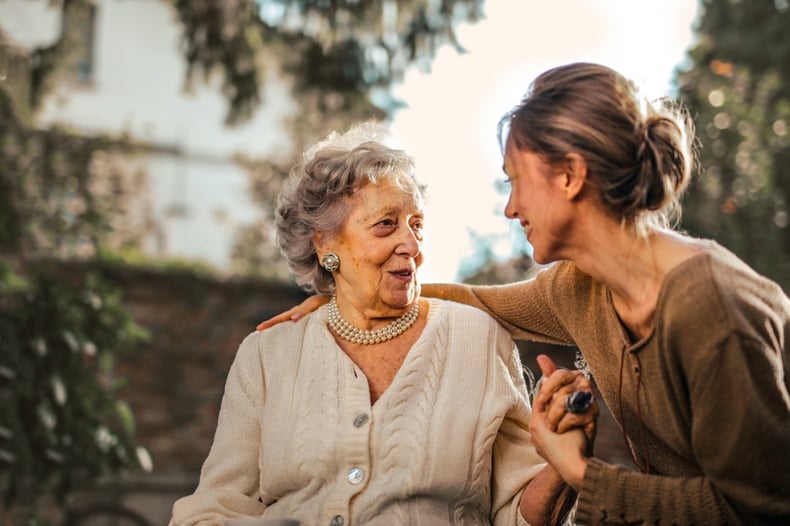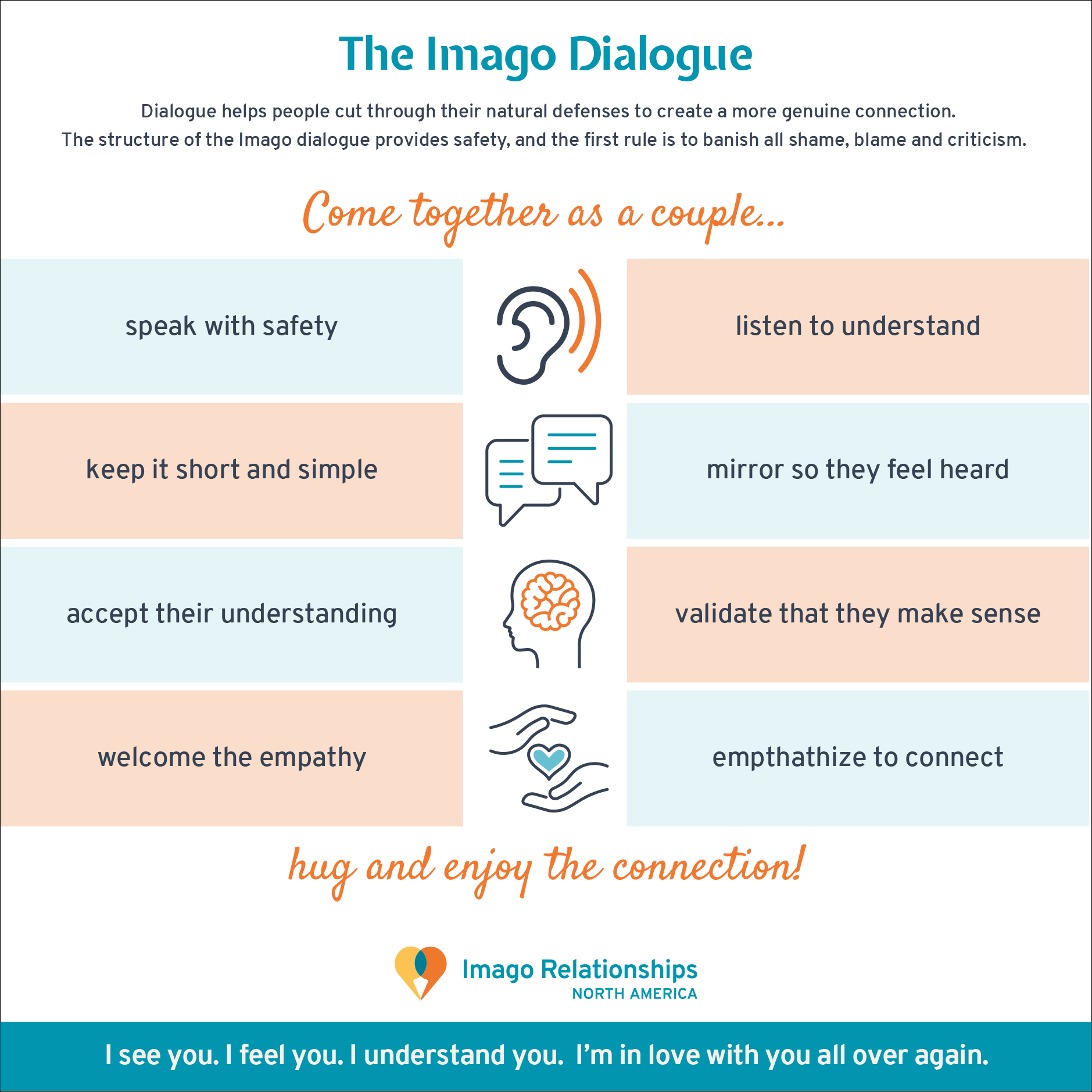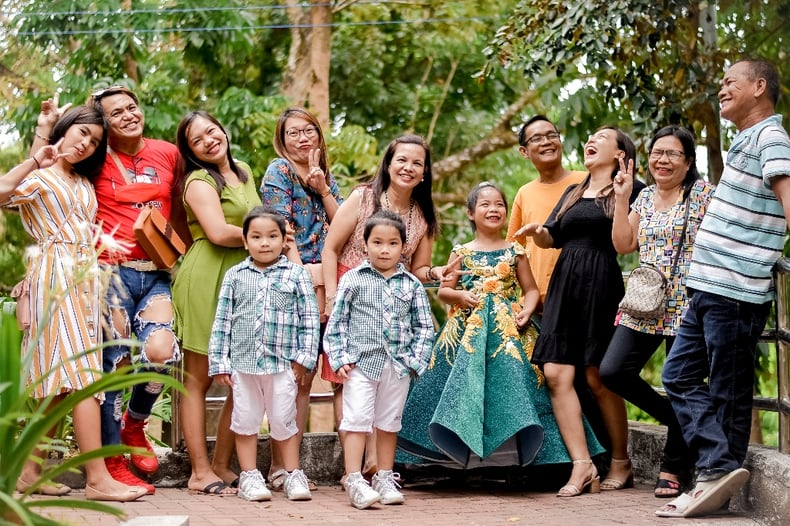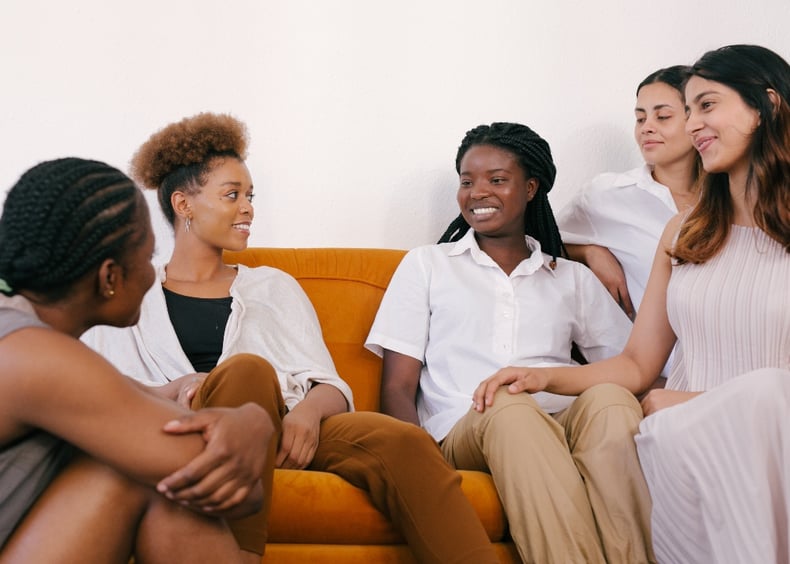
If you struggle in relationships with your friends, spouse, and even parents, it may be time to look at how you connect with others. You may even need to open up to other ways of connecting to deepen the bonds with the ones you love and hold closest to your heart.
If you are experiencing negative relationship dynamics, you may notice that it has a domino effect on your life. Unfortunately, this is not uncommon for adult children. For example, if you still blame your parents for things happening in your life, it may negatively impact all your relationships. Blaming anyone, even your parents, for your life can sabotage your romantic relationships. You may even now notice the impact of how you feel in how you interact, communicate, and relate to those you love.
Another negative relationship dynamic adult children may discover is the realization they act exactly like their parents. Essentially, you may be saying or doing things you swore you'd never do when you became a parent or an adult.
Have you become just like your Mom or Dad? Maybe it's yelling, scolding, or saying the same things that were told to you as a little kid.
Are you feeling any of the above items? Then, you may be tempted to cut off your parents from yourself and your children. Or, perhaps you already have cut them off due to the unresolved disappointments, deeply held grudges, and even expectations from the generational wounds passed down from generation to generation. No matter why you want to or have cut them off, the negative relationship dynamic between parent and adult child can be deeply painful.
However, the good news is that a pathway exists to repair unhealthy relationships between parents and adult children to benefit all future generations.
When doing the hard work to repair generational wounds, you must first begin with a willingness to sit before one another and listen with curiosity for understanding, not necessarily "agreeing," just simply listening with a curious ear to what the other is saying.
Generational repair also begins with a strong desire to speak in a way you can be seen, heard, and accepted. So, when all parties - adult children and parents are available, curious about themselves, the other, and their relationship, the possibility of connection emerges.
So, here are a few tips to improve your relationship dynamics to move forward in a positive and healthy direction with those you deeply love.
Tip #1: Learn How to Re-parent the Wounded Parts of You

You arrive in the world as a fundamentally relational being with your unique sense of "self" wholly intact and simultaneously entirely dependent. As you develop in the earliest stages of life, you learn to adapt to the care of the people who raise you and the environment in which you grow. These brilliantly devised adaptations assure that you will belong and be loved. Whether or not you maintain consistent, warm, reliable connections with your parents and siblings, you are essentially a product of the experience you shared in the earliest years of development.
As an Imago Relationship Therapist, I believe that in adulthood, you will re-parent the parts of your "self" that were not parented as you needed or longed for in childhood and practice this type of relational work with couples. Imago Relationship theory believes you're unconsciously attracted to the familiar in your partner. The tension between the desirable attraction and the unconscious familiar creates the opportunity for reworking old childhood wounds, pains, and survival reactivity. So, learning how to re-parent oneself can be essential to healthy relationships.
Tip #2: Learn How to Nurture Parent-Child Relationships as an Adult

In the complex tapestry of human relationships, few bonds hold as much significance as the one between adult children and their parents. This intricate dance of love, history, and shared experiences can be deeply fulfilling and profoundly challenging.
Imago Relationship Therapy offers a transformative approach to unraveling the complexities of adult parent-child relationships, fostering understanding, healing, and renewed connection. By delving into the depths of each individual's unique experiences, you'll learn how to nurture a parent-child relationship as an adult with the following:
- A roadmap for navigating the complexities of this evolving bond.
- Allowing both parent and child to embark on a journey of growth.
- Empathy.
- Authentic connection.
Tip #3: Learn How to Use the Imago Dialogue In Your Relationships

As an Imago Therapist, we teach the essential Imago tool of dialoguing to help our clients establish and nurture safety in the space between themselves and their loved ones. Once there is a foundational safety experience in a relationship, with curiosity, you can look at how present-day relationship experiences can be pressing on the triggers of childhood needs and longings.
Using the dialogue structure for relationships will help to build safety. Then, we layer on the daily appreciation. Most importantly, we replace shame, blame, criticism, and cynicism with curiosity, acceptance, wonder, delight, and awe. We practice looking for all that is good and safe and possible.
Tip #4: Learn how to Stop The Generational Drift

Occasionally, I work with individuals or a member of a couple who wants to repair their existing adult parent-child relationship. Longing to heal old ruptures, wanting a connection, resolving past dynamics, and inviting new behaviors are part of healthy adulting.
While you can't rewrite what happened to you in childhood, you can rewrite the emotional beliefs you carry. There are no perfect parents. Your parents didn't have them, nor did you. You are simply the product of generations of imperfection, layer upon layer. Learning how to stop the generational drift is always possible by inviting new behaviors into the space between you and your loved ones.
Tip #5: Learn How to Make Choices and Connect Deeper in Each Situation

Learning to use the Imago dialogue to connect with family, friends, colleagues, and strangers is not new. Imago Relationship Therapy effectively tends to the space between us regardless of the nature of the relationship. Living in a relational paradigm is a biological imperative. Your ability to thrive depends on each of us as humans, turning toward one another in distress. Your survival default says turn on or away each other. Survival is a solitary experience that prizes the self over the other. And it IS effective!
When you practice owning what you say, do, and HOW you say it or do it, you'll begin to recognize you're powerless over others' words and actions, but you do have agency over your contributions. Safety does exist when you have a sense of connection, choices, and context. Understanding is at the heart of repairing ruptures - curiosity is the bridge.
Tip #6: Daily Practice to Make Imago Part of Your Life

You get better at whatever you practice. When you notice an objection to another person's words or actions, pause and see if you can slow down. Invite curiosity into the space between you and the other person.
Replace judgment with, "I want to understand you; tell me more." If you long for connection with your parent(s) but have a contentious or nonexistent relationship with one or both, practice building connection and safety with other easier relationships first.
Reach out to someone you have drifted away from. Turn towards a safe person to resolve a minor disturbance between you. Start with strangers! Notice your irritation because another person is driving badly, moving slowly, taking up too much space, whatever.
The moment you notice any irritability, try the following:
- Name it.
- Feel it.
- Breathe into it.
- Offer yourself a small gesture or kind word.
- And now, mirror the person who is bothering you.
Tip #7: Take Responsibility for What You Say and Your Actions.

Notice how what you put into the space between you in your relationships impacts the quality of your relationships. What is most important to you?
Ask yourself these questions:
- What is the legacy of your family relationships?
- How would you like to pass that on to the next generation?
- What do you have to lose by seeking to understand and be understood?
Healthy relationships will foster trust, equality, and good communication that can lead to a generational change. So, learn to lean into your relationships with soft eyes and welcoming gestures. Become a place of safety, curiosity, and awe for those you deeply love. Continue to seek the tiniest thread of delight or shared traits you can celebrate with one another.
Regulate your reactions and express yourself in ways that can be heard. Listen for understanding vs. responding or judging. Remember, you can have understanding with your loved ones without necessarily agreeing. By understanding your loved ones, you share the feeling of belonging and being deeply and truly loved. What more do we all need in life than to belong and be deeply loved?
If you're ready to do the work to improve the relationship dynamics with those you love the most, we're here to help with our online and in-person Imago Relationship Workshops and Relationship Therapy.
Discover more about Imago with our Imago Professional Membership, Imago Professional Facilitators, Imago Professional Training, and Imago Educational Webinars.
*Original Content: https://imagocenterdc.com/rewriting-the-ties-that-bind

This blog post was written by Hayley Hoffman, MA, LPC.
Hayley trained as a psychodynamic clinical counselor focusing on helping couples and individuals to live relationally and to navigate life’s terms. She works from an empathic stance, helping clients through the process of noticing, identifying, and understanding patterns of behavior that, while once useful coping mechanisms, are no longer working. Together with her clients, they explore attachment meaning, past and current dynamics, somatic experiences, and ways to consciously connect in relationships with self and others.
Hayley’s practice is rooted in “unconditional positive regard,” creating a safe haven for exploring vulnerability and change, and a spiritual approach to life’s ups and downs, drawing on the lessons she has learned in Imago Therapy, Polyvagal Informed Therapy, 12-step work, and psychodynamic clinical theory. Her client base is focused on adults, individuals, and couples.
After obtaining a Master’s in Clinical Counseling from Northwestern University, she became a Certified Imago Relationship Therapist. She is an experienced Getting the Love You Want Workshop Presenter. She also offers the Keeping the Love You Find relationship workshop for individuals. She is certified in the Safe and Sound Protocol (SSP) and has trained with Deb Dana in Polyvagal Theory and the applications of this theory in therapy.
Check out her Website and Online Couples Workshops too!



